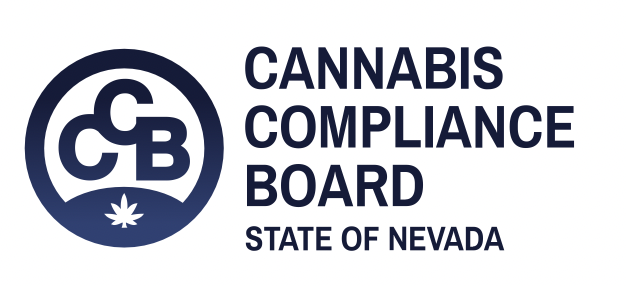
Cannabis Compliance Board (Photo: CCB.NV.GOV)
NV Leg Kills Cannabis Compliance Board’s Attempt To Expand Power
CCB introduced SB33 which would have likely been the largest unrestrained and independent power grab by an executive agency in Nevada
By Kiera Sears, May 15, 2023 3:53 pm
On May 9, we reported that SB 328 had successfully passed the Senate, and now awaits further discussion by the Assembly. As introduced by Senators Robin Titus and Rochelle Nguyen, SB 328 seeks to curb the authority of the Cannabis Compliance Board (CCB), by removing it from the list of government agencies currently exempt from the provisions of the State’s Administrative Procedure Act (APA). And while it is likely that SB 328 will continue to move forward, it’s worth noting that a separate bill, as introduced by the CCB to expand such authority, has been stopped dead in its tracks.

The CCB introduced Senate Bill 33 in an effort to expand its authority and receive complete autonomy as an independent governing agency, that could exercise “any proper power and authority necessary to perform the duties assigned to it by the Legislature, and… not limited by any enumeration of powers in this chapter.”
Although the bill had a simple title, “revises provisions related to cannabis,” its purpose was far more intricate and extensive. Diametrically opposed to SB 328, the implications of SB 33 were so far-reaching that its passage required a two-thirds majority vote.
Such “proper powers and authority” would include refusing to reveal the identity of an “informant” in any court or administrative proceeding, or any information provided thereto; it would also keep all communications between the CCB and its industry members as “privileged”. Under SB 33, the CCB would have “full and absolute power and authority to deny any application, or limit, condition, restrict, revoke, or suspend any license, registration card or approval, or fine any person… for any cause it deems reasonable.” (Emphasis added).
The CCB would have the power to monitor the “conduct” of its licensees and registrants, and “ensure that licenses and registration cards are not issued to or held by… ‘unqualified, disqualified, or unsuitable persons.’” While those outside the industry might not see a problem with such unbridled authority, as cannabis is still a Schedule I substance under Federal law, its implications carry far graver consequences than its protections.
Since the cannabis industry’s inception, governing bodies have been adamant about not creating a “property right” through the issuance of a license, so that it may limit the procedural safeguards afforded to license holders under the APA. Following its complete exemption from the APA in 2019, the CCB has continued to move further down this path, providing license holders with little-to-no reprieve.
Under SB 33, the CCB would receive an entirely new power to initiate proceedings and actions,not just under Title 56, but also those under Chapter 453 of the Nevada Revised Statutes – the State’s Controlled Substance Act – which is applicable only to criminal activity. It would afford the licensing agency the power to initiate the prosecution of criminal violations, where its Executive Director and other agents could hold hearings and investigate violations alleged under both civil and criminal provisions. This would have been the largest unrestrained and independent power grab by an executive agency that this State has likely ever seen, with absolutely no checks or balances to counter.

The CCB would thereby have full authority to summarily suspend any agent for “engaging in an act or conduct which may result in an impairment of the health and safety of the public.” The “health and safety” caveat can be dangerous when so vaguely stated; this catch-all phrase would give deference to individual agents, to decide when, where, and what could be deemed “unhealthy” or “unsafe”, and to whom could be held further liable. It would likewise give such agents full power as that of a “peace officer [when] conducting investigations,” where each could exercise such power whenever they had “reason to believe” that a felony or gross misdemeanor was committed outside of their presence, or when “committing or attempting to commit” a misdemeanor while they were there.
The language of this bill is a direct reflection of the challenges the CCB has faced over the last several years, as an administrative agency bound by the constraints of the law. With the introduction of SB 33, it sought to introduce new draconian laws to escape these constraints and expand and increase its power. While the citizens of this State have legalized the use, sale, and distribution of cannabis, and its cannabis establishments are owned and operated as lawfully licensed businesses, the CCB continues to move forward as though its participants are criminal.
Sometimes the bills that don’t pass are just as important as the ones that do – for in reviewing and analyzing the language of such bills, we are able to understand the outright intentions of our government agencies and the effects of maintaining a “Fourth Branch” of Government.





People forget all the special things that the influx of California liberals have done for this state. For example…cussing has become legal.